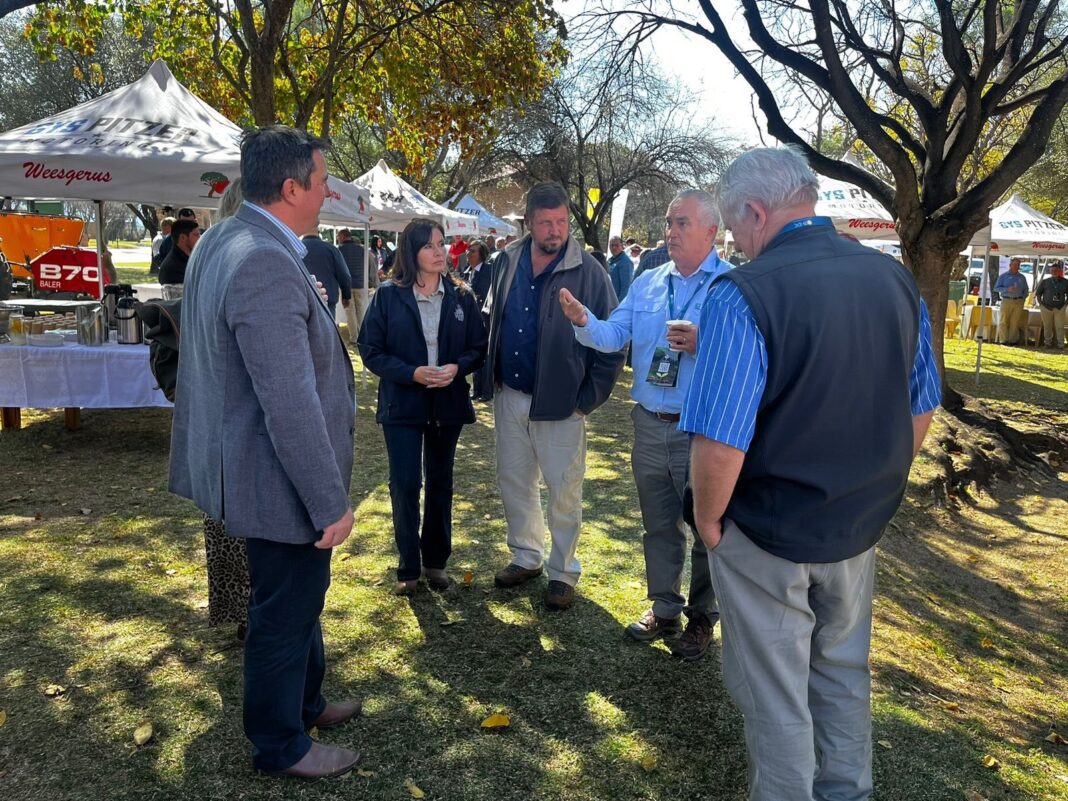By Johannah Malogadihlare
Agriculture Minister John Steenhuisen said he will meet with representatives from both Botswana and Namibia in order to find a solution on the ban the two countries have imposed on South Africa’s citrus and other produce.
Steenhuisen was at the two-day Agri-Limpopo congress in Modimolle, Limpopo on Tuesday, where he addressed issues around job creation, trade, animal health, traceability and biosecurity within the red meat sector, improving infrastructure, and access to key citrus export markets.
He expressed confidence in finding a solution to the benefit of all involved, and said communication and compromise was key to resolving the matter.
“I believe a mutual agreement can be made between the three countries instead of restricting import and export of citrus fruits,” Steenhuisen said.
Steenhuise was disappointed by the ban and believed it was unhelpful to all countries, he said.
“You cannot just temporarily close the border or shut down industry, now we obviously want to hear Botswana and Namibia’s position on the matter, but I don’t think it can escalate to a trade war,” he said.
Botswana temporarily banned citrus imports from South Africa for three months from June to August, as part of a broader strategy to boost its local agriculture and achieve food self-sufficiency.
This follows a 2021 to 2025 ban imposed by Namibia and Botswana on imports of other produce including tomatoes, carrots, potatoes, cabbage, lettuce, garlic, onions, ginger and fresh herbs from South Africa.
Botswana’s President, Mokgweetsi Masisi, defended the decision, and said that the ban was a powerful move to boost local farmers and the economy.
However, the ban has left Botswana under-supplied, according to produce traders in the country, with some asking their government to reconsider its importation ban policy and allow at least 30% of fruit and vegetable commodity imports, arguing that local producers have not been able to meet the demand for most of the barred commodities.
Botswana-based member of the climate change NGO African Group of Negotiators, Kulthoum Omari-Motsumi said measures were needed to ensure that the country’s small and medium scale farmers are supported in light of the semi-arid nature of the environment and the vulnerability to droughts.
Many in South Africa have expressed concerns that these measures may affect SA’s export revenue, job market and vegetable prices, while South African farmers believe that the bans violate the Southern African Customs Union (SACU) agreement.
However, experts have suggested that a measured response is needed, one that is sensitive to the concerns of both countries while working towards a more balanced and sustainable trade relationship in the region.
Economist Wandile Sihlobo has criticised the prolonged bans on SA’s vegetable imports, arguing that they do not follow the regional agricultural co-operation with SACU.
The South African government has urgently requested a meeting with Botswana officials to discuss the potentially negative impact on trade relations between the two countries.
INSIDE POLITICS



